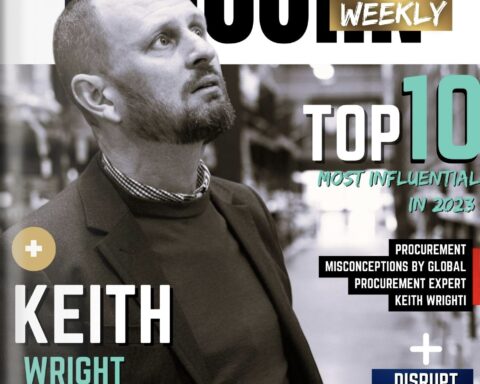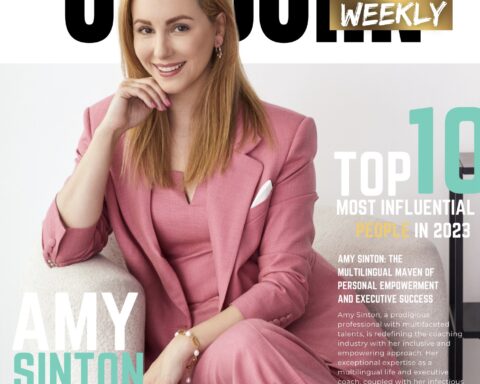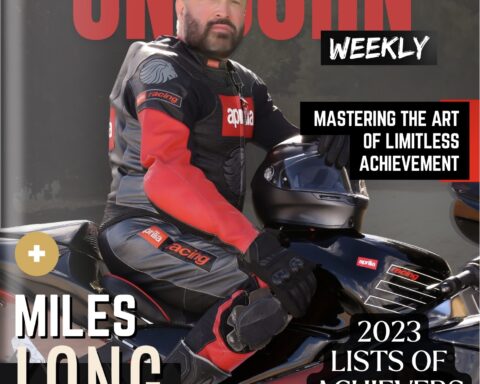FirstBuild isn’t shy about what it’s working on.
Traditionally, new products are closely guarded before being launched onto the market. Then, and only then, does the public get to weigh in with their feedback. The drawbacks of this approach are obvious. How can anyone be sure all that time and effort are worth it? You can’t! Typically, companies hedge their bets by launching the least risky new products — ones that aren’t that unique or really even all that new.
What if there was a different way to do product development?
What if you could collaborate with your fellow inventors and consumers to help professional prototyping and manufacturing experts improve products that you wish existed or worked better instead?
That’s part of the premise of FirstBuild, a Louisville, Kentucky makerspace backed by GE Appliances, a Haier company. FirstBuild’s team of industrial designers, engineers, and artists have taken nearly the opposite approach to developing new products (mostly for the home.) The company aims to design new products for ill-defined, underserved, and niche markets and relies on the power of openness, speed, and crowd engagement to come up with ideas.
The latest expensive appliance that FirstBuild has successfully crowdfunded is for fishing. SteadyScope is a stabilizer for fish-finding devices that can work on virtually any boat, the company says. It sprung from the mind of an engineer at FirstBuild who enjoys fishing and came to life through FirstBuild’s platform for sharing ideas and collaborating on product development. More than 2,000 collaborators, including professional fisherman, appliance experts, and fishing influencers, were involved in testing early prototypes. Deliveries are projected for August, which seems optimistic given that manufacturing lines do not exist yet.
Sean Stover, a captain of a local high school bass fishing team who was one of the project’s first testers, appreciates that FirstBuild engineers are receptive to community feedback and follow through.
“The great part of being part of the community with FirstBuild is that lots of us give feedback on products, but they actually listened to what I said,” he explains in a recent YouTube project update. “All of those things that I had issues with in the first run were fixed when they came out with the second generation.”
Many inventors are wary of sharing their ideas with others for fear of having them stolen. FirstBuild’s perspective is that the benefits of disclosure are too strong to ignore.
“The number one rule for us is, we’re going to be vulnerable and we’re going to be transparent,” explained André Zdanow, FirstBuild’s executive director, in a phone interview. (Zdanow was an integral member of the team that launched and grew Quirky, the once-thriving, now-defunct open innovation platform for inventors.) That means sharing new ideas well before they’re fully fleshed out to see what kind of signal they generate.
Does Zdanow fear being copied? Not really.
“We err on the side of showing, but we’re doing a lot of work to try and understand the patent landscape in the background,” he said. “And yes, we will pause to disclose if we think that that’s germane.”
The benefits of receiving organic feedback from potential customers — whom he broadly describes as enthusiasts — outweighs the risk, he added. And while patentability is taken into consideration, FirstBuild is ultimately concerned with identifying where new markets are, which necessitates exploring a wide range of ideas. To that end, anyone can sign up and submit a written description of their idea for a new product or comment on the ideas of others on FirstBuild’s online CoCreate platform.
The most interesting concepts are quickly developed enough to be introduced to the public and tested for responsiveness using YouTube and Instagram. Concepts that receive the most positive engagement are developed further, and the crowd is kept in the loop with prototyping updates.
“We were told, ‘Go and experiment and put ideas out into the world and see if you can cover your costs,’” Zdanow said.
Which is amazing! In my experience, environments like that — ones where freedom and curiosity are celebrated — are where genuinely innovative ideas can come to light.
People who contribute to a successful product are eligible for compensation, including royalties. Community members retain the rights to their original ideas and design submissions per a Creative Commons license, which requires Zdanow to negotiate licensing agreement terms on a case-by-case basis.
Whether it’s an individual inventor or a group of folks who came together on the platform, the onus is on FirstBuild to come to terms that they’re okay with, or they can simply walk away.
“All intellectual property is not created equal,” Zdanow explained. “We want this to be a safe space for creatives, and the only way to do that is by letting them control their idea, or their IP, until such time that they’re sure that they want to move forward with us.”
So, is their strategy working? Kind of. FirstBuild’s major commercial success was the Opal Nugget Ice Maker, a pricy millennial cult favorite that has received mixed reviews and spawned a line of appliances for its parent company. Other products it has developed include a smart sourdough starter, an aging chamber for charcuterie, and a coffee grinder silencer. Some concepts that were invented and co-created by members of the FirstBuild community have become GE Appliances products, including Kitchen Hub, a 27-inch integrated smart-touch screen and ventilation combo that fits above your range.
For now, Zdanow’s main goal is to grow the FirstBuild community to include more impassioned people, which will help him and his team continue to identify unmet needs and ultimately put more ideas and innovative products out into the world.
When I began creating things with my hands, it was purely for the excitement and the fun of it. I didn’t think about commercialization. I definitely didn’t worry about protection. I was motivated by the pure joy you get from the act of creating something new, which is truly magical. The same sense of playfulness exists at FirstBuild, which is remarkable and refreshing.
It’s true: You never know where the next great idea is going to come from.










